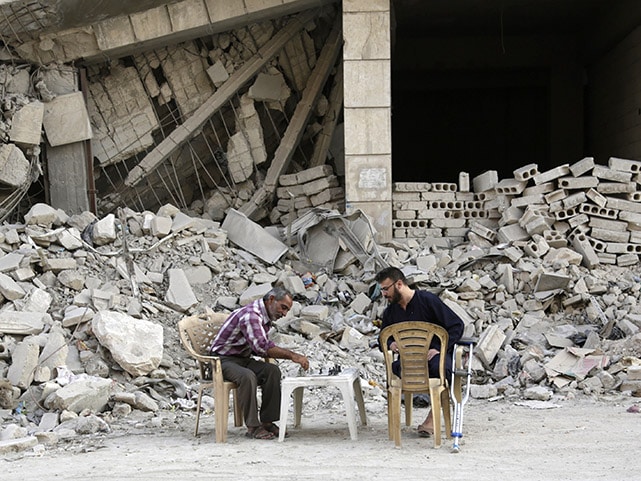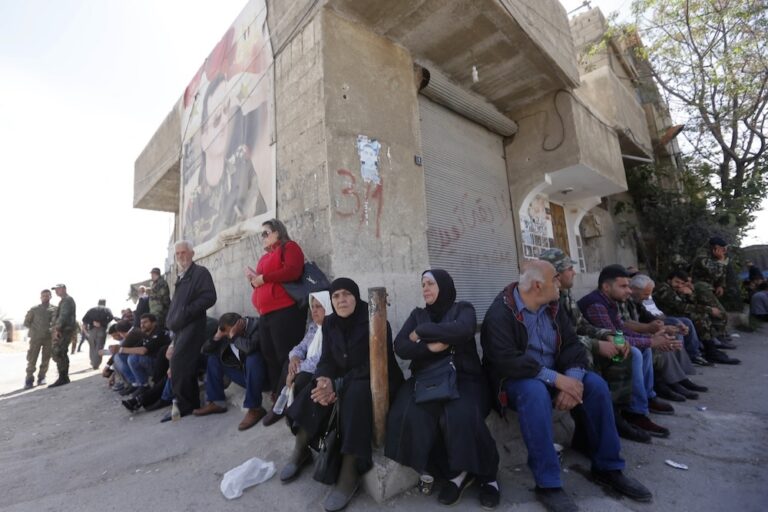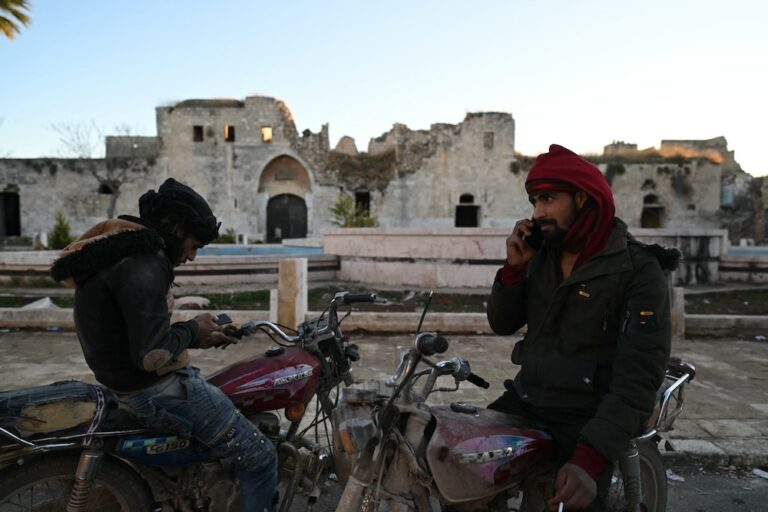In this four-part series on the men and women illuminating Syria's darkest regions, IFEX speaks to individuals working with four independent Syrian collectives operating anonymously inside the war-torn country to find out what motivates them to keep going despite the grave and often, fatal, risks involved.
The Syrian conflict has been raging for well over four years. What began as a confrontation between Bashar al-Assad’s regime and Syrian protesters soon turned into a war in which more than 70 rebel groups fight against each other, regime forces and regime-affiliated armed groups, as well as a terrorist organisation that has managed to sow fear in the hearts of people far removed from the conflict itself.
Now, more than ever, the story of a war as complicated as this one needs to be told in a responsible, balanced, and dignified manner. But over the course of the conflict, this process too has undergone drastic change. Where once, seasoned international war correspondents could be relied on to bear witness to the events unfolding on the ground, today only those who have a personal stake in the country’s rebuilding are willing to risk their lives not just to get the news out, but also to give Syrians inside a voice.
Over four years of conflict, Syria has become a graveyard for both international and local journalists. According to the Committee to Protect Journalists (CPJ), at least 86 reporters have been killed since 2011. More than 90 journalists have been abducted in the country since the conflict began, and approximately 25 are currently missing. Now, most major news organisations refuse to send their staff into the conflict, international freelancers deem the country too dangerous to venture into, and local journalists, like most citizens, are choosing to seek asylum elsewhere.
In spite of these developments, information is still overwhelmingly available. Images of the suffering are still being broadcast to the world, this time by ordinary Syrians, untrained in the profession of journalism. Information is leaving Syria in raw form, without context, free for use and misuse by all stakeholders in the war. However, this new generation of citizen journalists has increasingly been developing their skills, expertise, and communications platforms.
“Never in Syrian history has the media landscape been so rich and diversified: citizen journalist networks, online and printed newspapers, news websites, magazines, facebook groups, radios, individual bloggers and net-activists, televisions, web aggregators: they all contribute to shaping an incredibly vital and pluralist space for the exchange of facts and opinions. Despite the fragility and the difficult conditions that characterise this cultural environment, it is here also that the idea of a future Syria is framed and negotiated,” wrote Enrico De Angelis for openDemocracy, an electronic magazine which has partnered with independent digital media project Syria Untold, to archive and provide context for the barrage of information coming out of Syria.
In November 2015, IFEX spoke to individuals working with four independent Syrian collectives operating anonymously inside the war-torn country, to find out what motivates them to keep going despite the grave and often, fatal, risks involved. Each of the four collectives has lost at least one of their members to the war.
Part One: Raqqa is Being Slaughtered Silently
What the international community knows about life in Raqqa under the brutally oppressive rule of Daesh, it knows because of the brave work of the anonymous activists that make up the group Raqqa Is Being Slaughtered Silently (RBSS), recently awarded the Committee To Protect Journalists’ International Press Freedom Award.

Part Two: Eye on the Homeland
In Syria’s war, truth is not just a casualty – it is the enemy. Warring factions put as much effort into concealing their crimes and exaggerating those of others as they do into gaining territory. Journalists and activists who stand in their way are captured, jailed, kidnapped, tortured, and killed. Sometimes, even when in exile.

Part Three: Radio Rozana
While the rest of the world watches the Syrian war unfold on their televisions and computer screens, Syrians within are often left in the dark. With electrical blackouts and erratic and heavily filtered access to the Internet, propaganda travels like wildfire. In June 2013, a group of exiled journalists sought to change that. They launched Radio Rozana, an independent Arabic language radio station that broadcasts from Paris and is aimed at all Syrians, regardless of their affiliations.

Part Four: AbouNaddara Film Collective
While graphic, disturbing images of the Syrian war have permeated the Internet, numbing people’s minds, the quiet, short videos produced by the AbouNaddara film collective has managed to capture the tragedy of the Syrian reality in a way that encourages understanding and empathy.




